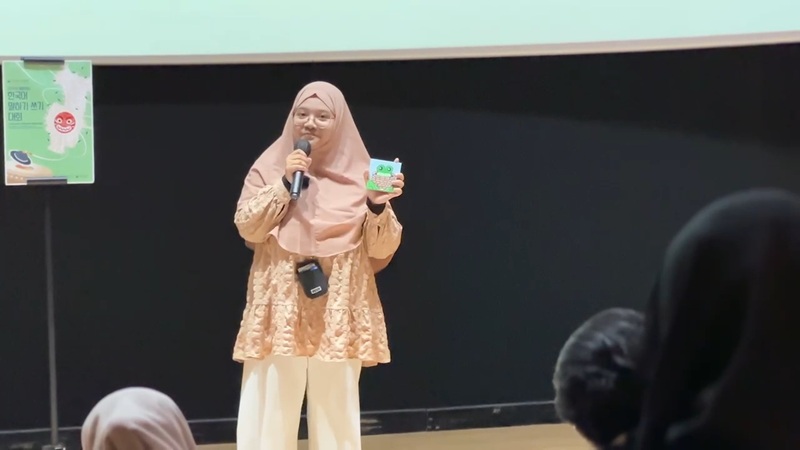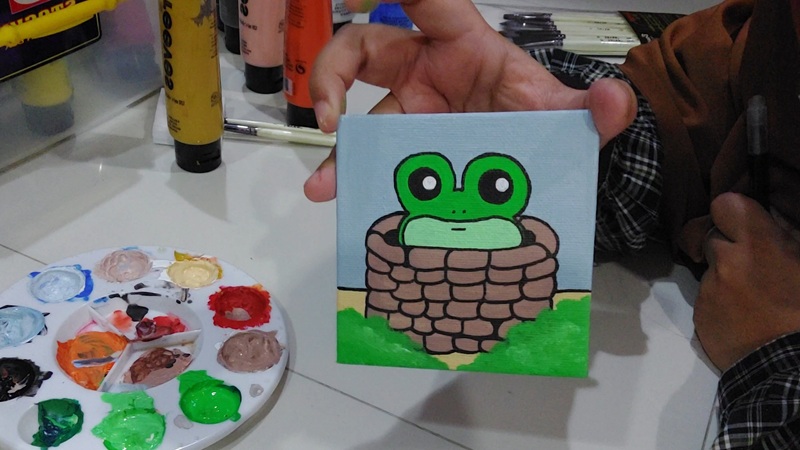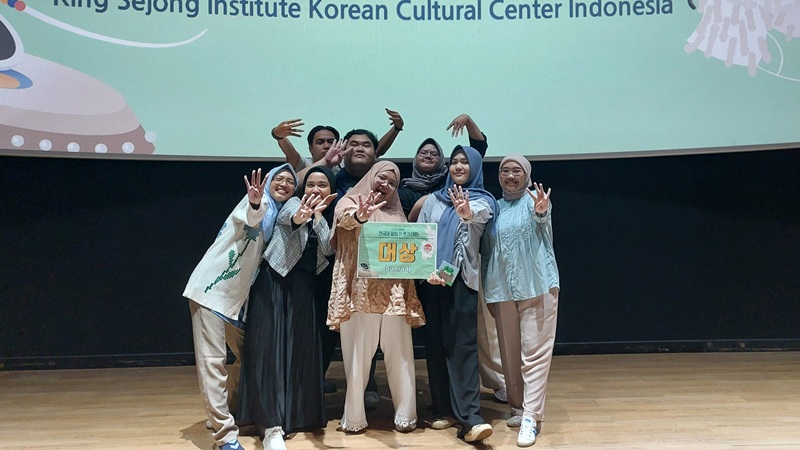On May 26, 2025, I participated in the annual Korean Speaking Contest organized by the King Sejong Institute of Korean Cultural Center Indonesia. The event took place at CGV Theater, FX Sudirman, Jakarta.
The 2025 KSI KCCI Korean Speaking and Writing Contest participants were required to be Indonesian citizens born to Indonesian parents, aged 18 or older. Eligibility also extended to current students of KSI KCCI for the 2025 term or graduates from the previous semester.

This year marked another attempt, perhaps the fourth or fifth, at competing in a Korean language contest. And i feel like i am on cloud nine when KCCI announced me as the Grand Prize Winner for this year contest. Few years back then, I had participated in Korean Writing Contest at another King Sejong Institute branch before transitioning to Korean Speaking Contest at King Sejong Institute KCCI last year. Although I had tried multiple times, I always lost to stronger competitors that it feels like I'm fighting a losing battle. At that moment, the lingering doubt made me hesitate to join this year.
Yet, within my circle of friends, many of whom had won previous contests, I felt a push. One of them, who has not win the grand prize yet all this time but eager to compete in the writing category, consistently encouraged me to participate. She reminded me that, since graduation was nearing, this might be my last opportunity.
So, when the registration link opened, I carefully reviewed the themes. There are two topics for the Korean Speaking Contest, which are “My Favorite Korean Expression and The Reason” and “The Most Impressive Class at KSI”. Although I was unsure about speaking in Korean, I felt an undeniable connection to the topics.
One proverb stood out on my mind, 우물 안 개구리 ("A Frog in the Well"), which I learnt last year at KSI, and it is very similar to the Indonesian proverbs “Katak Dalam Tempurung” (“A Frog in the Coconut Shell”). Both proverbs also have the same meaning, which illustrate the dangers of having a limited perspective.
For me, this proverb felt deeply personal, reflecting my past fears, hesitant to step beyond my comfort zone, and reluctant to explore the unknown. Learning Korean and engaging in cultural events, however, broadened my world. Even now, though I have moved beyond my metaphorical well and coconut shell, the proverb remains a reminder to continue growing. And it was the one that successfully made me decided to participate in the contest.

The preparation stage was not an easy task. After I decided to join, I first drafted my speech in Indonesian before translating it into Korean with simple vocabulary and grammar. My friends helped refine the wording while my teacher in KSI KCCI polished the structure further. Even though the script is the first thing i should take care of, but because i really love the proverb so much, i decided to paint some pictures that depicts the proverb, and after some consideration i decided to bring it to the contest as a property.
After i finished with the script, practice became an essential part of my routine. Initially, remembering everything was difficult as I stumbled through the speech in nearly five minutes, filled with errors and nerves till it passed the limit of the needed time for contest. But with continuous practice, recording myself for 15 times, rehearsing even while showering, commuting, and before bed, I improved. Eventually, I reduced my speech time to 3 minutes and 49 seconds, proving that persistence truly makes a difference.
The contest was held at CGV Theater, FX Sudirman Mall, a venue I had visited days earlier to watch a Korean debate competition. Having seen the stage beforehand allowed me to mentally prepare for standing in front of the audience. Though I still felt nervous, visualizing the crowd made the experience less intimidating.
Fortunately, on the contest day, my speech went as planned, and I felt immense gratitude for my friends, who showed up to support me. Their enthusiastic reactions during my speech made the moment unforgettable. Their supports made me believe that now I’m not that “Frog in the Well” anymore. I felt deeply happy that Korean culture and language can connect us like this.
After the contest, some other friends even shared to their Instagram stories, commenting that my presentation style reminded them of a teacher’s. Others asked if I planned to teach Korean. The idea intrigued me, though I felt I still had much to learn. Yet, their encouragement sparked hope. Perhaps I could refine my skills further, dive deeper into Korean culture, or even explore teaching in the future.
This contest made me learn many things which i wish many people can also take note from, if they wanted to participate in Korean language contest or every contest they want to joined in the future.

There’s a saying, 시작이 반이다 or "Starting is half the battle." If you're considering competing, don’t hesitate, just do it. Once you decided to participate, just focus on crafting a strong speech and practice tirelessly until you can deliver it naturally. While preparation alone doesn’t guarantee victory, at least, it minimizes mistakes and nervousness, helping you present your best self.
Learning Korean has opened my eyes to fascinating linguistic parallels between Korean and Indonesian. The deeper I explore these connections, the more I appreciate how language serves as a bridge between cultures. Even seemingly small differences, such as the frog’s setting (a well in Korea vs. a coconut shell in Indonesia), reflect the unique environments of each country.
This contest reaffirmed that learning a language isn’t merely about memorizing words—it’s about embracing new perspectives, connecting across cultures, and continuously expanding one’s worldview.
How about this article?
- Like0
- Support0
- Amazing0
- Sad0
- Curious0
- Insightful0


